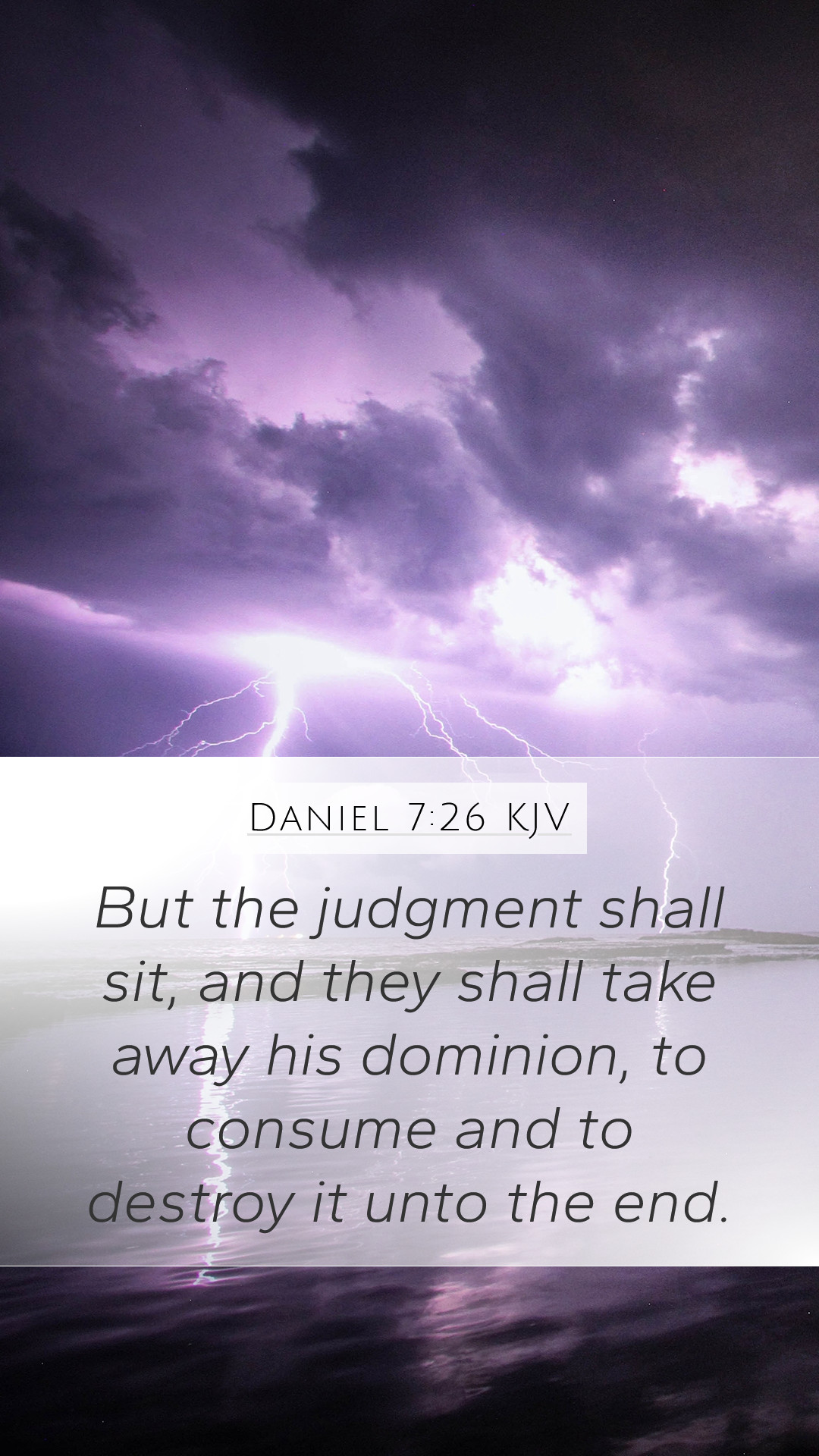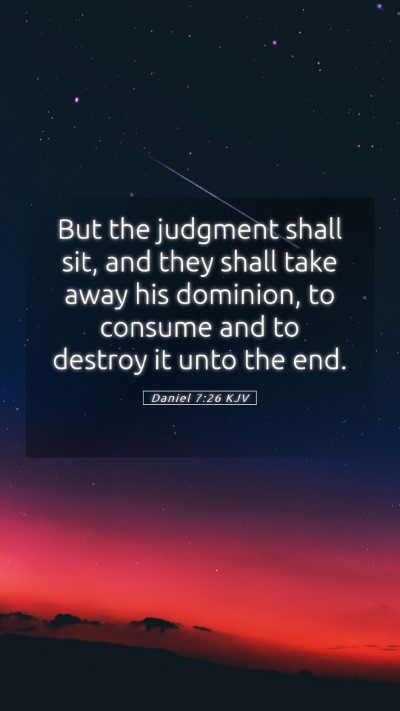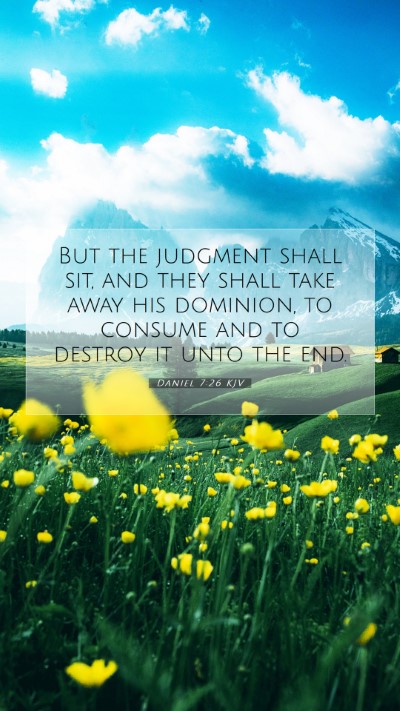Bible Verse Commentary on Daniel 7:26
Verse Reference: Daniel 7:26
The verse states: “But the judgment shall sit, and they shall take away his dominion, to consume and to destroy it unto the end.” In this passage, the prophet Daniel reveals profound insights regarding divine judgment and the fate of oppressive powers.
Understanding the Meaning of the Verse
Daniel 7 describes a series of visions where various beasts symbolize kingdoms and empires that rise and fall throughout history. In verse 26, Daniel addresses the ultimate judgment that God will enact upon these powers. The emphasis is on the certainty of judgment and divine authority over human affairs.
Key Themes and Insights
- The Sovereignty of God: This verse underscores the belief that God's authority surpasses any earthly power. It is a reassurance that despite the visible chaos and tyranny, God's plan prevails.
- Divine Judgment: The judgment referenced is not arbitrary; it reflects a divine order where wrongs are righted, and justice is served. This serves as an encouragement to those facing oppression.
- The Finality of Judgment: The phrase "to consume and to destroy it unto the end" implies a complete and irreversible judgment. This reinforces the notion that sinful regimes will face ultimate annihilation.
Commentary Insights
Matthew Henry’s Commentary
Matthew Henry emphasizes that this judgment is not merely concerning a historical context but signals a broader divine judgment applicable to all ages. He highlights that the phrase signifies God’s absolute power to strip away dominions that defy His will.
Albert Barnes’ Notes
Albert Barnes explains that this passage highlights the transition from human oppressive rule to divine authority. He interprets the “judgment” mentioned as a surety that all who stand opposed to God’s people and His commands will ultimately face retribution.
Adam Clarke’s Commentary
Adam Clarke presents the view that this scripture serves to assure believers about the ultimate triumph of righteousness over wickedness. He discusses the significance of knowing that God's judgment is inevitable, providing hope and a profound sense of security to the faithful.
Applications and Reflections
This passage is vital for believers today as it encourages perseverance amidst adversity, reminding us of the hard but real truth that God is in control. It invites us to reflect on our own lives, urging us to consider how we align with God’s justice and righteousness.
Practical Applications
- Encouragement in Trials: In moments of tribulation, believers can take heart knowing that God will ultimately vindicate the righteous.
- Understanding Authority: This verse prompts discussions on the nature of power and authority, especially in contemporary governance.
- Hope in Justice: The assurance that God will judge oppressive powers shapes our understanding of justice in society, encouraging active engagement in promoting righteousness.
Cross References
To deepen your study, here are related passages:
- Revelation 20:11-15 - The Great White Throne judgment emphasizes the ultimate accountability before God.
- Isaiah 11:4 - Signifying God's just judgment and His role as a divine ruler.
- Psalm 75:7 - Affirms that it is God who judges and brings down one and exalts another.
Conclusion
Daniel 7:26 serves as a powerful reminder of God’s sovereignty and the promise of justice. Through the biblical exegesis provided by various commentators, we glean insights that not only pertain to the historical context of the text but find relevance in our contemporary lives.
For those engaging in Bible study groups, online Bible study, or using Bible study tools, this verse is a pivotal inclusion for discussions around divine justice and authority.


